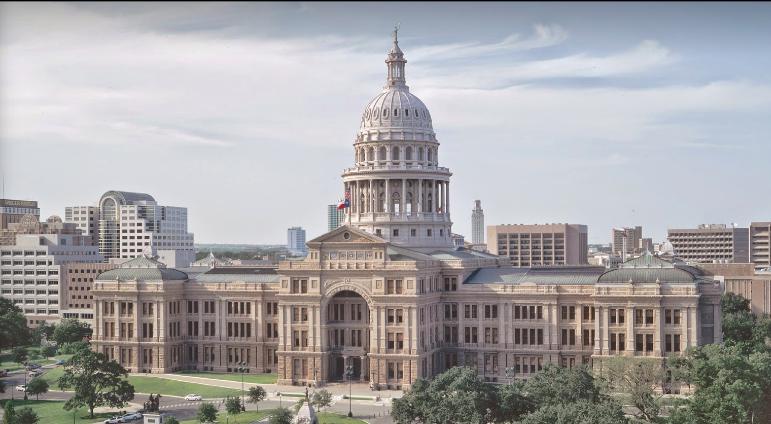
Wikicommons

Audio By Carbonatix
The Texas Senate approved a bill Tuesday that would offer legal protections to those who refuse to provide services on religious grounds.
Senate Bill 17 bars state license-granting agencies from denying or stripping professional licenses “based on a sincerely held religious belief” of the applicant or license-holder. Critics say the bill would give a wide range of licensed professionals, including doctors, lawyers, teachers and plumbers, permission to discriminate against LGBT people without fear of losing their licenses.
The bill passed by a 19-12 vote, with Sen. Kel Seliger of Amarillo being the only Republican to vote against it. One Democrat, Sen. Eddie Lucio of Brownsville, voted for it. The Senate must pass the bill once more before it goes to the House.
Sen. Charles Perry, the bill’s author, said the bill would allow anyone called before a state licensure board to cite their religious beliefs as a defense against losing their licenses. Perry, a Republican from Lubbock, said the bill would mean license-holding professionals wouldn’t lose their livelihoods for exercising their religious convictions.
Even as several lawmakers denounced the bill, saying it would harm the LGBT community and leave the rest of the country with the impression that Texas is a state that allows discrimination, Perry insisted that wasn’t the case.
“It’s not licensing discrimination at any level,” Perry said.
But Sen. Borris Miles, D-Houston, didn’t buy it.
“You know that saying, ‘You can put lipstick on a pig?'” Miles said. “Sen. Perry, this is a discrimination bill.”
“You know that saying, ‘You can put lipstick on a pig?’ Sen. Perry, this is a discrimination bill.” — Sen. Borris Miles, D-Houston
Sen. Juan Hinojosa, D-McAllen, said the bill would effectively mean that the Texas state government was using its authority to give professionals the right to discriminate against anyone they pleased, as long as they cite a religious belief as an excuse.
“This bill really allows discrimination against gay people, against Hispanics, against African Americans, against anybody you don’t like … as long as you can fit that into a sincere religious belief,” Hinojosa said.
But Perry said the Civil Rights Act of 1964 prohibits discrimination based on race. The bill would do nothing to overturn protections offered by federal law or any other state law, Perry said.
“Your skin color is still protected,” Perry said. “It has been and will be and should be.”
The bill includes a provision that requires medical providers to treat patients who are at immediate risk of death or serious injury. As filed, the bill also did not apply to police. Perry filed an amendment Tuesday that expanded that exemption to all emergency responders.
During debate Tuesday morning, Democratic lawmakers introduced a pair of amendments to the bill. Sen. Jose Menendez filed an amendment prohibiting license-holders from refusing to provide services based on sexual orientation or gender identity. Menendez argued that, if the bill truly wasn’t meant as a license to discriminate against LGBT Texans, lawmakers should clarify it. The amendment failed by a 19-12 vote.
Sen. Jose Rodriguez introduced an amendment that would require license-holders to report to their license-granting agencies anytime they deny services on religious grounds. The amendment also failed by a 19-12 vote.